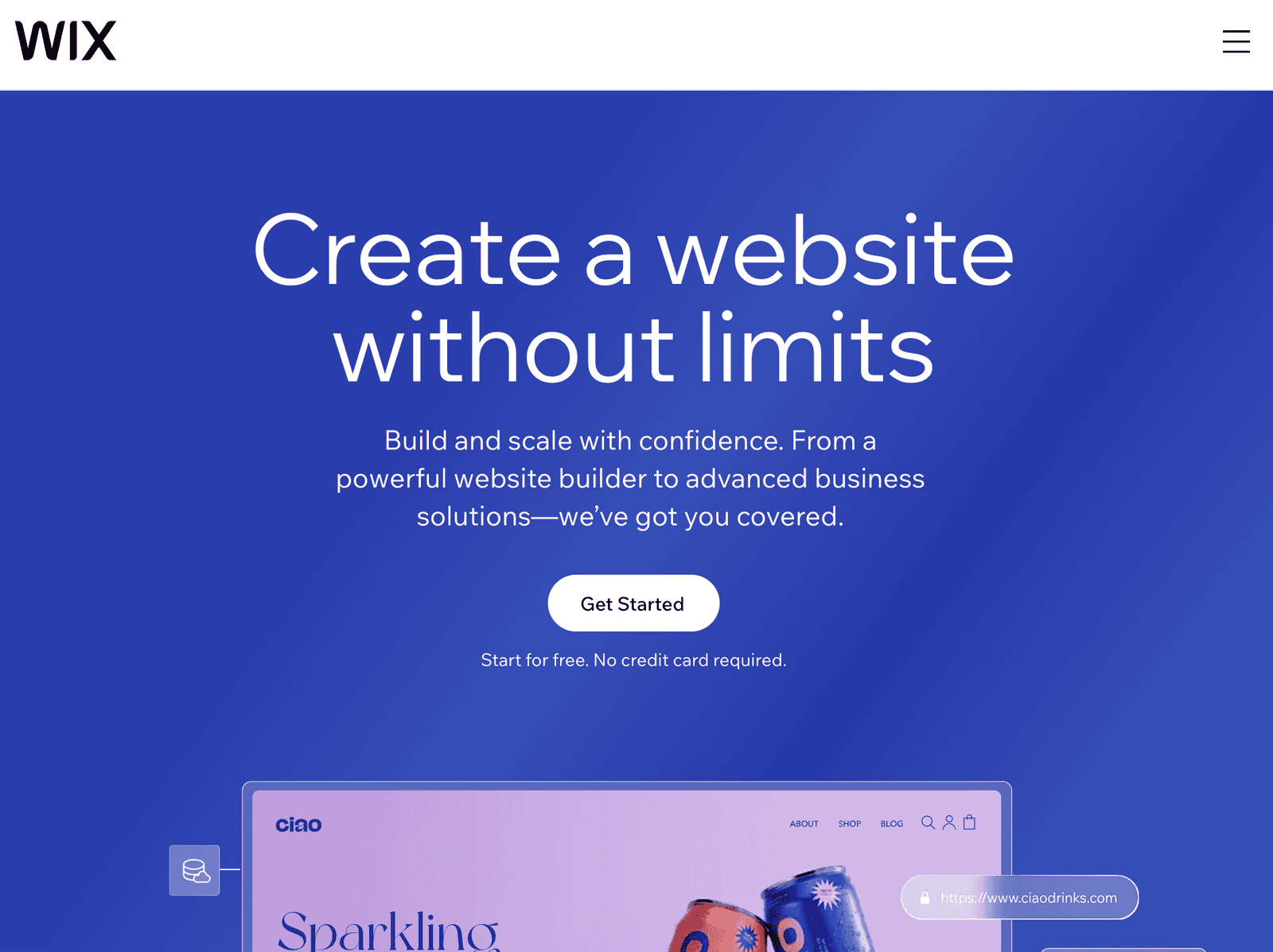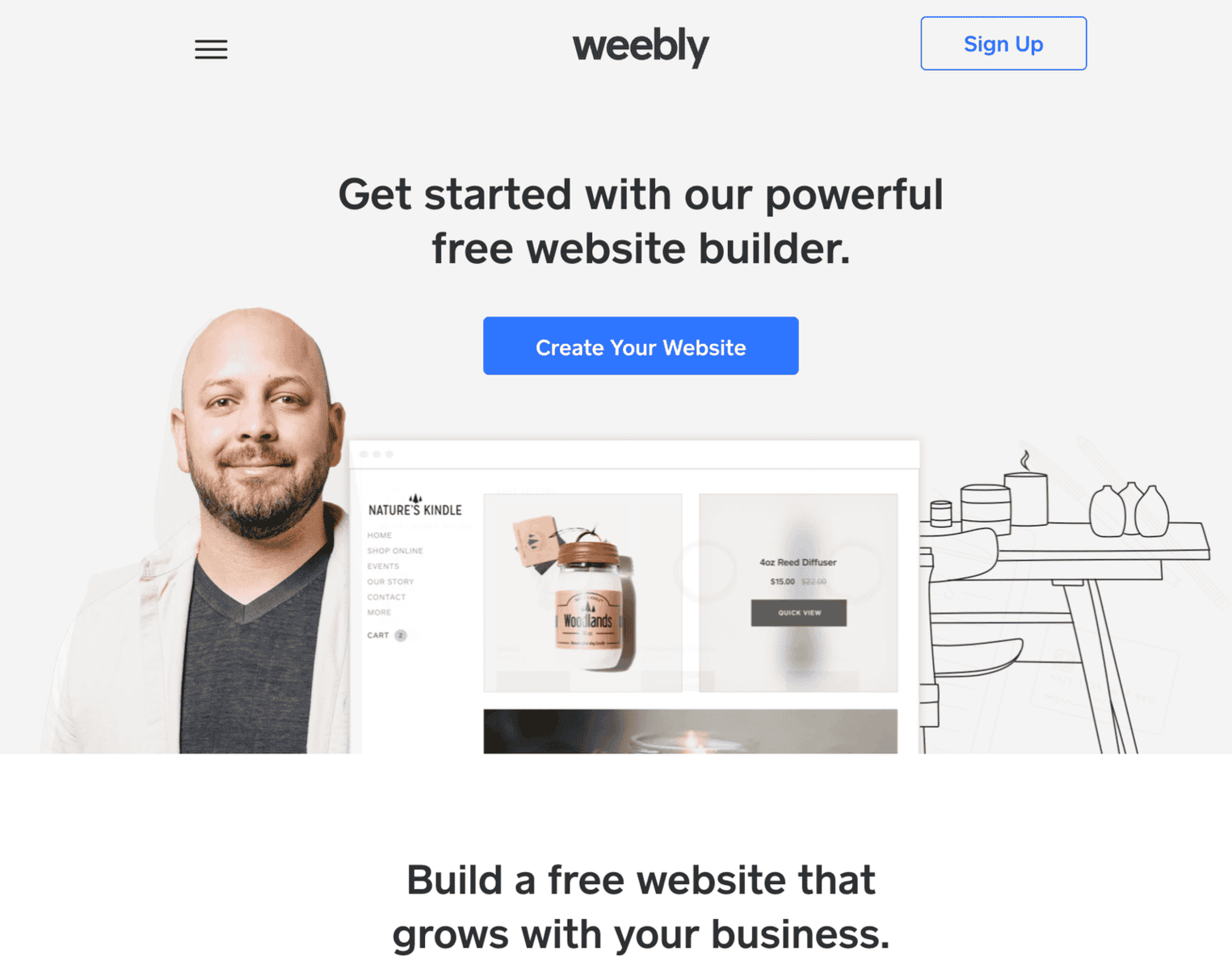The 10 Best Website Builders Reviewed for 2024
If you’re here searching for the 10 best website builders, you’re in the right place. Maybe you’re new to the game, paralyzed by choices, or just too busy to do the research yourself.
I’ve been down that road, scrolling through endless options, trying to find that one perfect fit. This article simplifies all that for you. We compare the top builders, cutting through the clutter to give you clear, actionable info. You’ll find which platforms offer the best bang for your buck, suit your tech skills, and meet your specific needs—like e-commerce or SEO tools.
Let’s make your decision easy and get you building that dream site.
The 10 Best Website Builders Reviewed for 2024
Wix: Features and Benefits

Ease of Use
Let’s talk about Wix. I’ve built a few projects with it, and I can tell you: it’s a breeze. Using Wix is like playing with digital Lego blocks. Drag this, drop that, and voilà – you have a website.
Wix gives you a toolbox loaded with customizable templates. It’s like walking into a massive store where everything’s ready for you to tweak to your heart’s content. If you’re seeking flexibility, you’ll find it here.
Pricing Plans
Wix offers a free plan. Yes, free. But, if you’re serious about your site, you’ll want to consider their paid plans. They start as low as $14 per month. It’s no secret; you get what you pay for. The free version is functional, but the premium plans bring extra features, from removing Wix ads to connecting your domain.
Strengths and Weaknesses
Wix isn’t perfect, but its pros outweigh the cons. What’s good? Flexibility. Anybody, from your grandma to your tech-savvy cousin, can use it. And the templates? They look like a high-end designer whipped them up.
What’s not to love? Their customer support could be better. If you run into a problem, getting help might feel slow. But for general use, it’s quite smooth.
Squarespace: The Creative’s Choice
Design and Templates
Squarespace is like the cool artist of website builders. The templates are high-quality; think magazine cover-worthy. They look fantastic on both desktop and mobile. When you want your site to scream “classy,” Squarespace has you covered.
Ecommerce Capabilities
Selling online? Squarespace has an integrated shopping cart and various payment gateways. Whether you’re offloading handmade jewelry or a digital service, it makes your ecommerce dream come true.
Weebly: Great for Beginners

If you’re new to web design, Weebly’s your buddy. Setting up is simple, almost foolproof. Your site will be up in minutes. Beginner tools make tweaking easy.
Pricing and Value
Free is always nice, and Weebly offers that. But stepping up to a paid plan adds useful features. Prices start around $6 per month, which is pocket change for a well-rounded site.
Shopify: Built for Ecommerce
Ecommerce Features
Shopify is the gold standard for ecommerce. Product management is smooth. Processing payments is straightforward.
It doesn’t stop at the basics. Shopify includes inventory tracking and a shipping calculator. Brilliant for larger operations.
Shopify shines at customer support. Get 24/7 support, and if that fails, their community forums have answers to most questions.
WordPress: The Veteran in the Game
WordPress is like a Swiss Army knife of website builders. Thousands of plugins and flexible themes turn it into whatever you need. It’s been around forever and has a plugin for nearly everything.
Built-in blogging tools and solid SEO features make it ideal for content-driven sites. You get noticed and stay relevant.
BigCommerce: Best for Large Stores
Big inventories, no problem. BigCommerce handles bulk product listings like a champ. It’s made for businesses that aim high.
Secure payments and top-notch fraud detection keep you and your customers safe. It’s robust and reliable.
GoDaddy Website Builder: User-Friendly and Fast Setup
GoDaddy covers you with a fast setup. Onboarding is easy and fast, with pre-made sections ready to go. Perfect if speed is of the essence.
Email marketing tools and social media integration ensure you stay connected. Handy features for growing your audience.
Jimdo: Simple and Effective
Jimdo uses AI, making site creation personalized and super fast. I tried it, and it took minutes.
Email support and a rich knowledge base help a lot when you hit snags. Not the fastest contact method, but the knowledge base is thorough.
Webflow: Design Flexibility
No code, just advanced design tools. Webflow fits detailed designs, including interactions and animations. A designer’s playground.
Dynamic content and custom databases? Yes, please. Webflow’s CMS is powerful.
SiteBuilder: Affordable and Functional
SiteBuilder is easy on the wallet with cost-effective plans. It covers essentials without breaking the bank.
The user-friendly interface gets your site up and running in no time.
Frequently Asked Questions
Which website builder is best for beginners?
If you’re just dipping your toes into the world of website building, Weebly and Wix should be at the top of your list. I remember when I first started my blog. It was overwhelming to think about coding or designing from scratch. Both Weebly and Wix offer drag-and-drop interfaces that are super intuitive. You can literally see your website come to life as you move elements around on the screen, like playing with digital Lego blocks.
Weebly’s strength lies in its simplicity. It’s like cooking an easy recipe, with steps laid out clearly, and minimal confusion. Wix, on the other hand, offers a bit more flexibility. It’s like having a kitchen full of ingredients – you can go simple, or you can go gourmet. Both platforms have free plans too, so you can start without committing any money. That’s a win-win, especially when you’re still figuring things out.
How do I choose the right website builder for my budget?
Budget often dictates choice, but don’t simply go for the cheapest option. Assess your needs first. For personal sites or portfolios, Webflow or Jimdo can be cost-effective options with good features. When I was starting my own online store, I quickly found out that cheaper plans might save money initially but often lack scalability or essential features.
Look into the free plans of builders like Wix, Weebly, and Jimdo. These allow you to build a basic site at no cost. If your needs are more advanced, like setting up an ecommerce store, paid plans are necessary. Shopify and BigCommerce are pricy but packed with features like inventory management and customer support. Check out this review of Bubble.io for another perspective on feature-rich tools.
Can I build an ecommerce store with these website builders?
Absolutely. For ecommerce, several options stand out: Shopify, BigCommerce, and Squarespace. Shopify is like the Swiss army knife of online stores. It comes loaded with built-in features for payment processing, inventory management, and even shipping calculators. I’ve used Shopify to set up stores that were up and running in just a weekend.
BigCommerce is another great option for large inventories. Imagine you’re running a big warehouse, and you need everything organized. BigCommerce offers advanced bulk listing features and secure payment options. Lastly, Squarespace combines beautiful design with integrated ecommerce capabilities. It’s perfect for those who value aesthetics as much as functionality.
Are these website builders SEO-friendly?
SEO shouldn’t be an afterthought. SEO helps your site to show up when people search for related topics on Google. Most top website builders understand this and offer built-in SEO tools. Wix and WordPress are particularly strong in this area. I’ve experimented with different platforms, and nothing beats WordPress for blog-centered SEO. It’s got plugins for everything imaginable.
Wix, on the other hand, makes SEO accessible for beginners. I remember helping a friend set up a small business site. The included SEO Wizard in Wix was a lifesaver. It guides you step-by-step, making sure you optimize everything from page titles to alt text. Here’s a great review of the Stacker app for additional no-code tools with SEO prowess.
Do these tools offer customer support?
When you’re venturing into the world of website building, expect to hit a few snags. Customer support can be your safety net. Shopify offers 24/7 support, which has been a game-changer for me during late-night working marathons. BigCommerce also shines in this area with robust support and a community forum.
Wix and Squarespace offer extensive help centers with articles, videos, and community forums. These are incredibly handy. I’ve often found answers to my questions faster by searching through their forums before reaching out to live support.
For more comprehensive comparisons, check out this excellent TechRadar article that dives into different aspects of website builders.
So why wait? Pick a tool, experiment, and bring your vision to life. You don’t need to be a tech wizard to have a fantastic website!

